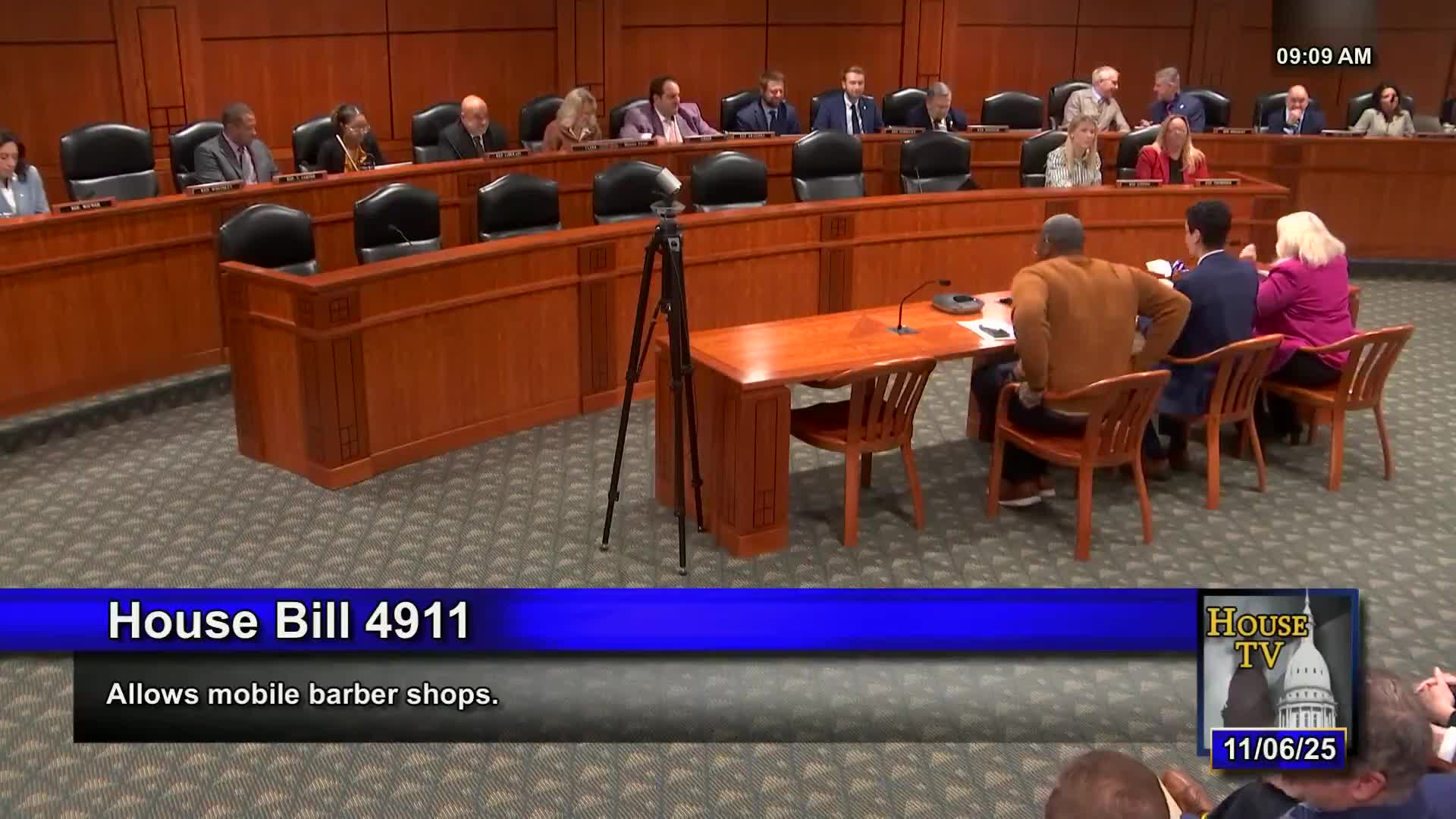Michigan bill would let licensed barbers operate mobile barbershops
Get AI-powered insights, summaries, and transcripts
Subscribe
Summary
House Bill 4911 would amend the occupational code to allow licensed barbers to provide services from self-contained mobile barbershops, aligning barber licensing with cosmetology rules and aiming to expand services to veterans, seniors and others with limited mobility.
Representative Karen Schmaltz introduced House Bill 4911 to the House Regulatory Reform Committee as a measure to "remove barriers to small business growth while also ensuring a fair market for mobile barbershops." Michael Jordan, owner of Mobile Barber Company, testified he built a fully equipped trailer after COVID closures to serve veterans, seniors, autistic children and people experiencing homelessness and described his operation as "accessibility, dignity, and innovation on wheels."
"Under current Michigan law, mobile barbering exists in a gray area," Jordan said, adding that the uncertainty makes it difficult to hire apprentices and expand services. He described his prices as generally $50 for a haircut, $55 with facial hair, and higher when he travels to clients ($120–$130 depending on distance).
Committee members asked whether mobile cosmetology already is permitted and why barbers were excluded. Schmaltz said licensed cosmetologists can operate mobile salons either by going into homes or using a mobile facility, and this bill would "expand the scope of what barbers are currently able to do to match the requirements that the cosmetologist license have." Representative Regas and others said they supported parity so barbers would have the same mobile options.
Representative Wozniak asked whether a separate new license would be required for the mobile location; Schmaltz said the intent is not to create a new license but to expand the barber license’s scope. Committee members also asked about how many mobile barbers exist in Michigan; Jordan said he found three others in his research but believes only a subset remain active.
Supporters and other witnesses — including Rick Carter and several representatives with cosmetology experience — described the measure as a way to reach clients who cannot visit brick-and-mortar shops and to modernize licensing without merging barbering and cosmetology licenses. No committee vote on HB 4911 was recorded during this hearing.
